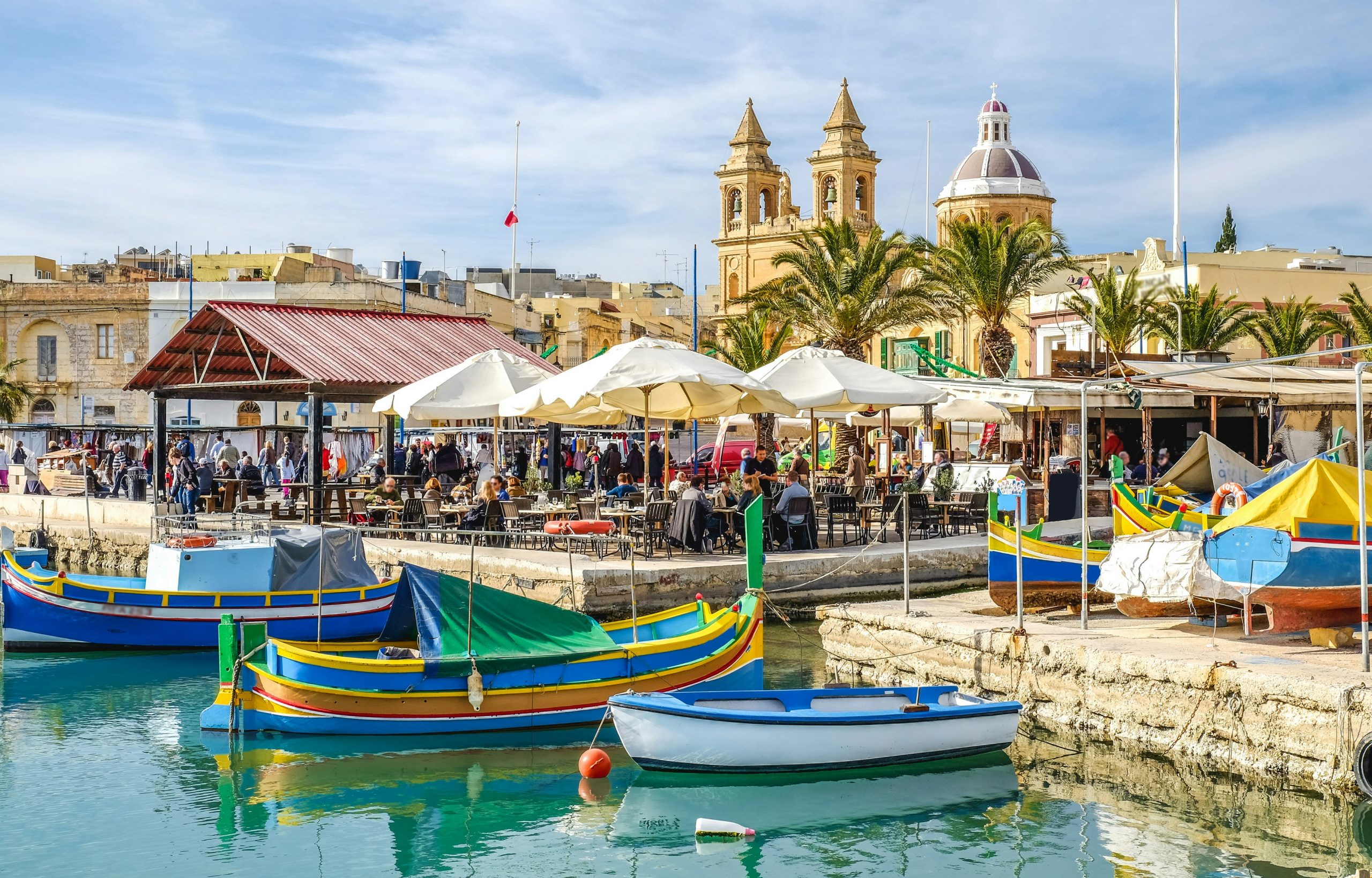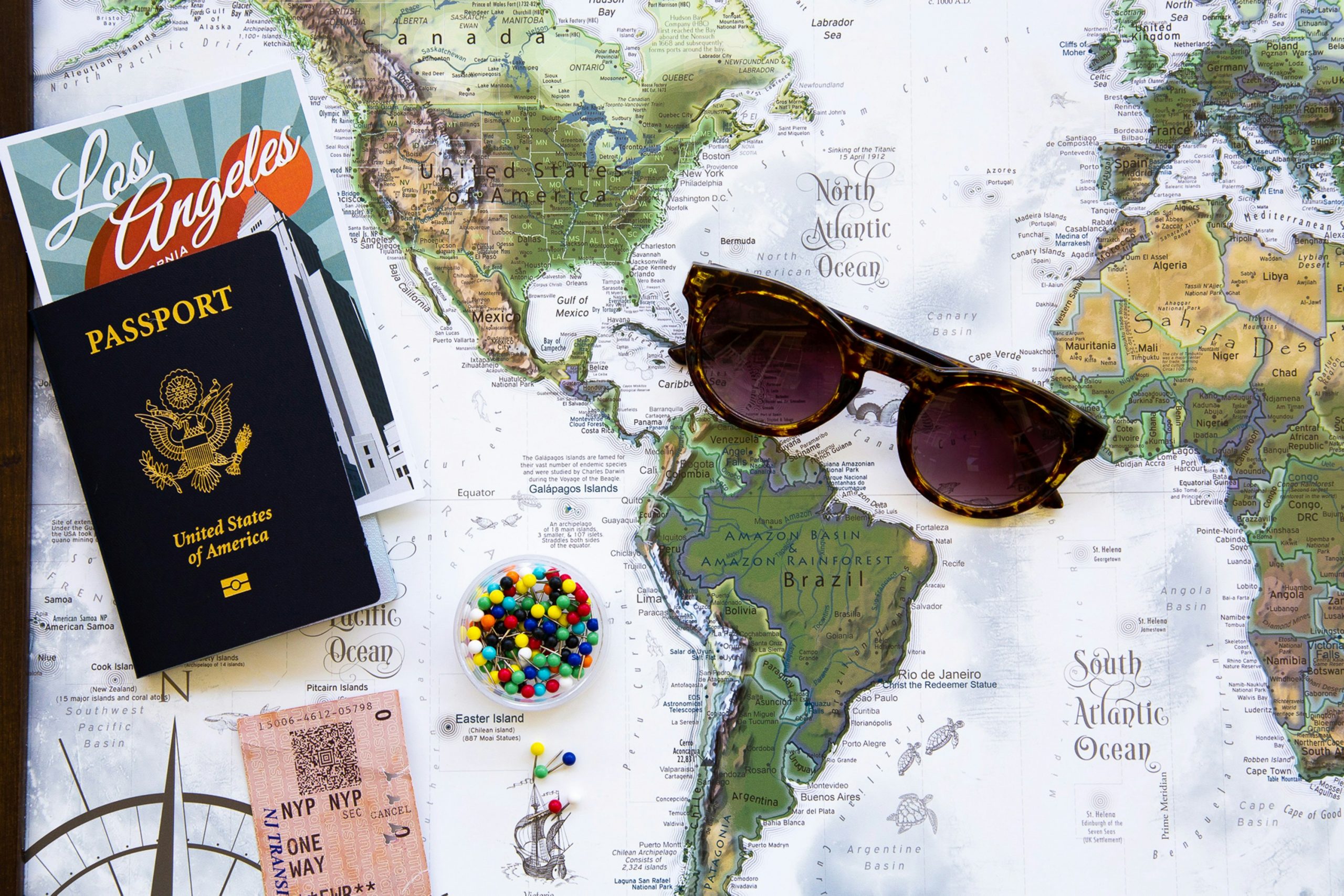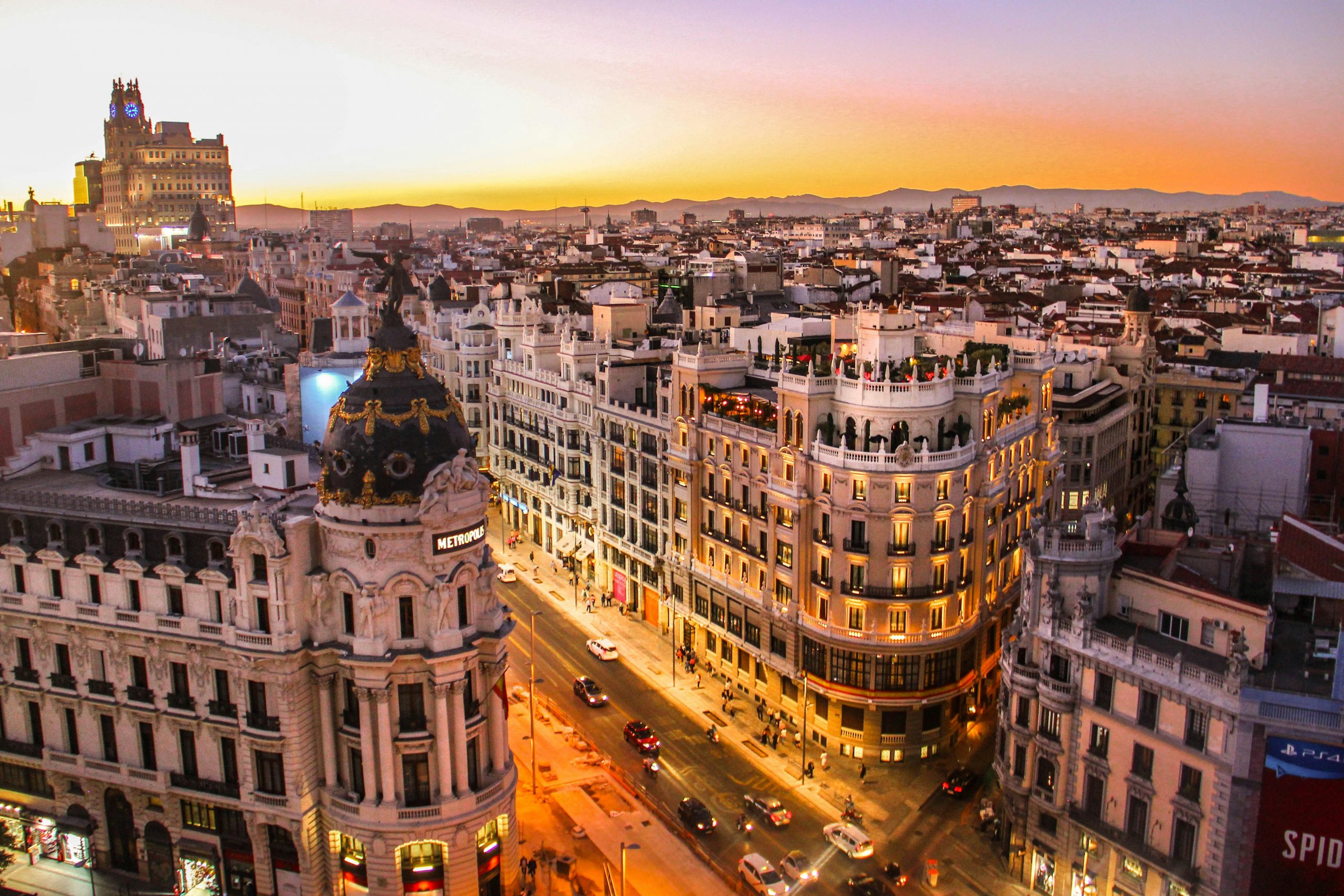✈️ Introduction
Malta, a small but stunning Mediterranean island nation, has become one of the hottest destinations for digital nomads in Europe. Known for its year-round sunshine, English-speaking environment, rich history, and EU membership, Malta has strategically positioned itself as a hub for remote workers through the Nomad Residence Permit (NRP).
Launched in 2021 by Residency Malta Agency, this program allows non-EU/EEA/Swiss citizens to live in Malta while working remotely for foreign employers or clients. Unlike tourist visas, the NRP provides legal residency status, making it easier to stay longer and enjoy EU access.
In this guide, we’ll cover everything about Malta’s Digital Nomad Visa in 2025, including:
- Who qualifies & eligibility criteria
- Minimum income requirements
- Application process & required documents
- Fees & timelines
- Benefits of the visa & lifestyle in Malta
- Cost of living & best places to live as a nomad
- Family inclusion rules
- Tax obligations & healthcare
- Renewal & long-term options
- FAQs and expert tips
By the end, you’ll know if Malta is the right digital nomad base for you in 2025.
👤 Who Qualifies for Malta’s Digital Nomad Visa
The Nomad Residence Permit (NRP) is open to non-EU/EEA/Swiss nationals who work remotely.
You may qualify if you:
- Work remotely for a company registered outside Malta.
- Are self-employed/freelance with international clients.
- Have sufficient stable income.
- Hold valid health insurance.
- Have a clean criminal record.
You are unlikely to qualify if you:
- Work for Maltese companies or intend to seek local employment.
- Fail to meet the monthly income requirement.
- Lack proof of remote work or valid insurance.
📋 Eligibility Criteria & Income Requirements (2025)
To apply for Malta’s Digital Nomad Visa, you must meet the following conditions:
Basic Criteria
- Valid Passport (covering your intended stay).
- Proof of Remote Work: Employment contract, freelance agreements, or proof of business ownership abroad.
- Health Insurance: Must cover medical services in Malta.
- Accommodation Proof: Lease, rental agreement, or property ownership.
- Clean Criminal Record: From your country of residence.
Income Requirement
- Minimum €2,700 net per month.
- For spouse/partner and dependents: you may need to show higher financial proof.
Duration
- Initial permit: 1 year.
- Renewable in 1-year increments, up to 3 years.
✅ Quick Eligibility Checklist
- Do you earn at least €2,700/month net income?
- Do you work remotely for non-Maltese employers/clients?
- Do you have health insurance that covers Malta?
- Can you provide a clean criminal record?
- Do you have accommodation in Malta?
👉 If yes, you’re a strong candidate for Malta’s Digital Nomad Visa.
Application Process, Documents, Fees & Timelines
🛠️ Step-by-Step Application Process
The Nomad Residence Permit (NRP) is managed by Residency Malta Agency, and the process is straightforward but requires accuracy and complete documentation.
1. Confirm Eligibility
- Ensure you meet the €2,700/month income requirement.
- Check you have valid health insurance and accommodation in Malta.
2. Gather Required Documents
- Prepare all supporting evidence (contracts, financial proof, insurance, criminal record, etc.).
- Translate documents into English if needed and get them apostilled/legalized where necessary.
3. Submit Application Online
- Applications are submitted directly to Residency Malta Agency via email or the official portal.
- Fill in the Nomad Residence Permit application form.
4. Pay Application Fee
- You will be required to pay the €300 government fee per applicant.
5. Wait for Processing & Approval in Principle
- If your application is successful, you’ll receive an Approval in Principle letter.
- You’ll have 30 days to finalize arrangements (accommodation, health insurance, etc.).
6. Travel to Malta
- Enter Malta (if not already there).
- Book an appointment with Residency Malta Agency to present documents and biometrics.
7. Receive Your Residence Card
- If approved, you’ll receive the Nomad Residence Permit card, valid for 1 year.
- Renewals are possible annually for up to 3 years.
📄 Required Documents Checklist (2025)
Here’s what you’ll typically need for your application:
✅ Valid Passport – Full copy of all pages.
✅ Completed Application Form – Nomad Residence Permit form.
✅ Recent Passport Photos – Compliant with biometric standards.
✅ Proof of Remote Work – Employment contract, freelance contracts, or business incorporation documents.
✅ Proof of Income – Bank statements, payslips, or invoices showing at least €2,700/month.
✅ Health Insurance – Covering Malta for the duration of your stay.
✅ Accommodation Proof – Lease agreement, property ownership, or hotel booking.
✅ Criminal Record Certificate – Not older than 6 months, from your country of residence.
✅ Cover Letter – Explaining your background, remote work, and reason for choosing Malta.
✅ Family Documents – Marriage certificate, birth certificates for children (apostilled + translated).
✅ Payment Receipt – €300 application fee.
👉 Pro Tip: Submitting an organized, well-translated, and complete file greatly increases your chances of smooth approval.
💶 Fees & Costs
- Application Fee: €300 per applicant.
- Residence Card Fee: €27.50 per applicant.
- Translations & Apostilles: €20–€50 per page.
- Health Insurance: €50–€200/month depending on coverage.
👉 Total upfront cost: €350–€600 (excluding insurance and living costs).
⏱️ Processing Times
- Initial Application Review: 30 days (on average).
- Approval in Principle: Issued once documents are verified.
- Biometrics & Residence Card: 2–3 weeks after arrival in Malta.
👉 Average total processing time = 4–8 weeks from submission to residence card in hand.
📝 Quick Application Summary
- ✅ Confirm eligibility & income (€2,700/month net).
- ✅ Collect documents (proof of work, income, insurance, accommodation, criminal record).
- ✅ Submit application + pay €300 fee.
- ✅ Wait for Approval in Principle (~30 days).
- ✅ Travel to Malta, finalize health insurance & housing.
- ✅ Book appointment, provide biometrics.
- ✅ Receive residence card (1-year validity, renewable).
Benefits, Cost of Living & Best Cities for Digital Nomads
🎉 Benefits of Malta’s Digital Nomad Visa
The Nomad Residence Permit (NRP) offers multiple advantages for remote workers:
1. Legal Stay in Malta for 1–3 Years
- 1-year permit with renewals up to 3 years.
- Removes the hassle of 90/180-day Schengen limitations.
2. Schengen Zone Access
- Free travel within the 26 Schengen countries while based in Malta.
3. English-Speaking Country
- English is an official language, making life, work, and paperwork easier for expats.
4. Family-Friendly
- Spouse and dependent children can join you under the same scheme.
5. Straightforward Process
- Applications are handled by Residency Malta Agency with relatively fast processing (4–8 weeks).
6. No Double Taxation Hassles (for many nomads)
- If your income is foreign-sourced and not remitted to Malta, it’s generally not taxed locally.
- Malta has double-taxation treaties with 70+ countries.
7. Mediterranean Lifestyle
- Over 300 days of sunshine per year.
- Mix of beaches, history, culture, and modern living.
- Safe, family-oriented environment.
💸 Cost of Living in Malta (2025)
Malta is not as cheap as Eastern Europe, but more affordable than many Western EU capitals. Costs vary by location (Valletta, Sliema, Gozo).
🏠 Housing
- Valletta: €1,200–€1,800/month for 1-bedroom.
- Sliema / St. Julian’s: €1,000–€1,600/month.
- Gżira / Msida: €800–€1,200/month.
- Gozo (island): €600–€900/month.
🍴 Food & Dining
- Groceries: €250–€400/month per person.
- Casual meal: €10–€15.
- Mid-range restaurant: €20–€35 per person.
- Coffee: €2–€3.
🚇 Transportation
- Monthly bus pass: €26 (public transport is cheap).
- Taxi/Uber ride: €10–€20 within city areas.
- Car rental: €400–€700/month (many expats use cars for flexibility).
- Ferries to Gozo/Comino: €5–€15.
💻 Coworking Spaces
- Sliema / St. Julian’s: €150–€250/month.
- Valletta: €120–€200/month.
- Gozo: €80–€150/month.
👉 Average Monthly Budget for a Digital Nomad in Malta:
- Frugal lifestyle: €1,500–€1,800.
- Comfortable lifestyle: €2,500–€3,000.
- Family lifestyle: €3,500–€5,000.
🏙️ Best Places in Malta for Digital Nomads
1. Valletta – Historic Capital
- Best for: Culture, history, city life.
- Pros: UNESCO World Heritage city, charming streets, good cafes.
- Cons: Smaller housing options, higher rent.
2. Sliema & St. Julian’s – Modern & Lively
- Best for: Networking, coworking, nightlife.
- Pros: Expats’ favorite, many coworking hubs, good apartments.
- Cons: Expensive, busy, touristy.
3. Gżira / Msida – Affordable Alternatives
- Best for: Budget-conscious nomads.
- Pros: Cheaper than Sliema/St. Julian’s but still central.
- Cons: Less charm, more urban sprawl.
4. Gozo – Tranquil Island Escape
- Best for: Nature lovers, slow pace.
- Pros: Cheaper housing, scenic views, relaxed vibe.
- Cons: Limited coworking and transport.
5. Mellieħa / Northern Malta – Beach Lifestyle
- Best for: Families and beach lovers.
- Pros: Quiet, family-friendly, beautiful coastline.
- Cons: Far from business hubs.
🌤️ Climate & Lifestyle
- Mediterranean Climate: Mild winters (10–16°C) and hot summers (30–35°C).
- Lifestyle: Outdoor cafés, sailing, beaches, diving, historic fortresses, and festivals.
- Safety: Malta consistently ranks as one of the safest countries in Europe.
👉 Malta offers a unique combination of sunny weather, English-speaking environment, EU access, and cultural richness — making it one of the most nomad-friendly bases in Europe.
Family Inclusion, Taxes & Pros and Cons
👨👩👧 Family Inclusion
Malta’s Nomad Residence Permit (NRP) is designed with families in mind.
Who Can Join You?
- Spouse or registered partner
- Dependent children (usually under 18, or older if financially dependent or in education)
Requirements for Family Members
- You must prove sufficient income to support dependents.
- Additional financial proof may be required (bank savings, contracts).
- Family members must have health insurance covering Malta.
- You must provide legal documents:
- Marriage certificate (apostilled + translated if needed)
- Birth certificates for children (apostilled + translated)
Benefits for Family Members
- Family members receive the same duration residence card as the main applicant.
- Children can attend public schools (free, English widely spoken) or private/international schools.
- Dependents also enjoy access to Malta’s healthcare system.
🏦 Taxes for Digital Nomads in Malta
Taxation in Malta is one of the biggest questions for nomads.
Tax Residency Rules
- You become a tax resident if you spend 183+ days per year in Malta.
- Tax residents are generally taxed on foreign income remitted to Malta, not worldwide income.
What This Means for Nomads
- If you earn abroad and keep funds outside Malta, you may not be taxed locally.
- If you transfer income into Malta (for living expenses), it may be subject to taxation.
- Malta has double taxation treaties with 70+ countries, reducing tax burdens.
👉 Many nomads structure finances to minimize taxable remittances. Consulting a Maltese tax advisor is recommended.
🛡️ Health Insurance Requirements
Health insurance is mandatory for both the applicant and dependents.
Options for Nomads & Families
- Private International Health Insurance – Most common for applicants.
- Local Maltese Private Insurance – Affordable options are available once you settle.
- Public Healthcare Access – Available if you become a resident under certain schemes, but private coverage is still required for the NRP.
Key Points
- Must cover medical emergencies and hospitalization in Malta.
- Must remain valid for the entire visa duration.
- Proof of coverage must be shown at application and renewal.
✅ Pros of Malta’s Digital Nomad Visa
- English-Speaking Country – Fewer language barriers than most EU countries.
- EU & Schengen Access – Travel freely across Europe.
- Tax-Friendly for Nomads – Foreign income not remitted may not be taxed.
- Family Inclusion – Easy to bring spouse and children.
- Renewable Residence – Up to 3 years.
- Safe & Stable – Low crime rate, politically stable.
- Mediterranean Lifestyle – Sun, beaches, historic charm.
⚠️ Cons of Malta’s Digital Nomad Visa
- Small Size – Limited diversity in lifestyle; island can feel small over time.
- High Rent in Hotspots – Sliema and St. Julian’s are expensive.
- Summer Crowds – Tourist influx can make life hectic in peak months.
- Traffic & Infrastructure – Roads can be congested and public transport limited.
- Tax Complexity – Remittance-based rules can be confusing without professional advice.
- Visa Duration – Maximum of 3 years, not a direct path to permanent residency.
Renewal, Long-Term Options, FAQs & Conclusion
🔄 Renewal & Extension Options
The Malta Nomad Residence Permit (NRP) is renewable but has clear limits.
- Initial validity: 1 year.
- Renewals: Up to 3 years total (renewed annually).
- Requirements for renewal:
- Ongoing proof of income (€2,700/month net minimum).
- Proof of continued remote work/employment abroad.
- Valid health insurance.
- Clean criminal record.
- Proof of accommodation in Malta.
👉 After 3 years, you must either leave Malta or switch to another visa/residency category (such as work, study, or investment).
🏛️ Long-Term Options After the Nomad Visa
If you fall in love with Malta and want to stay longer:
- Work Permit – If employed by a Maltese company.
- Self-Employment Visa – If you establish a business in Malta.
- Permanent Residency (PR) – Usually requires 5 years of residence under a qualifying scheme, but time under NRP does not count.
- Malta Permanent Residence Program (MPRP) – Through investment (property purchase/rental + government contribution).
- Citizenship by Naturalization – Requires 5+ years of residence, but pathways are stricter compared to other EU countries.
👉 For most nomads, the NRP is a short- to medium-term solution, not a direct PR pathway.
❓ FAQs About Malta’s Digital Nomad Visa (2025)
1. How long is the visa valid?
1 year, renewable annually up to 3 years.
2. What’s the income requirement?
At least €2,700/month net income.
3. Can I bring my family?
Yes. Spouse and dependent children are allowed, with additional income proof required.
4. Do I pay taxes in Malta?
- Foreign income not remitted to Malta is generally not taxed.
- Money transferred into Malta may be taxed under remittance rules.
- Malta has 70+ double taxation treaties.
5. Can I apply inside Malta?
Yes, you can apply if you are legally present in Malta on another visa, but most apply from abroad.
6. Do I need health insurance?
Yes. It must cover medical treatment and emergencies in Malta.
7. How long does processing take?
4–8 weeks on average from submission to residence card.
8. Does the permit count toward permanent residency?
No. Time on the Nomad Residence Permit does not count toward PR or citizenship.
9. Is English widely spoken?
Yes. It’s an official language alongside Maltese, making integration easy.
10. What happens after 3 years?
You must either leave Malta or transition to another visa/residency option.
🌟 Conclusion
The Malta Digital Nomad Visa is one of the most attractive short- to medium-term visas in Europe for remote workers in 2025.
Why It’s Attractive
✅ 1-year permit, renewable up to 3 years
✅ English-speaking environment
✅ EU & Schengen access
✅ Family-friendly program
✅ Tax-friendly remittance system
✅ Fast processing (4–8 weeks)
✅ 300 days of sunshine, Mediterranean lifestyle
Challenges to Consider
⚠️ Maximum 3 years, no direct PR path
⚠️ Housing costs high in Sliema & St. Julian’s
⚠️ Heavy summer tourist season
⚠️ Small island nation — lifestyle may feel limited long-term
Who Should Choose Malta?
- Remote professionals who want an English-speaking EU base.
- Families looking for a safe, sunny, and international environment.
- Nomads seeking Schengen mobility without complicated tax burdens.
- Short- to medium-term expats who want Mediterranean life but not necessarily permanent EU settlement.
👉 For digital nomads seeking sun, culture, EU travel, and tax simplicity, Malta’s Nomad Residence Permit in 2025 is one of the best options.



